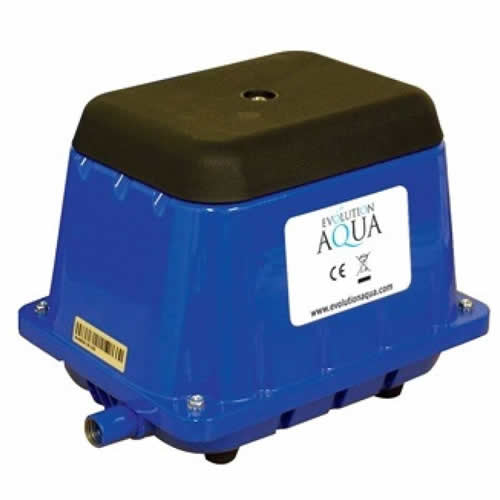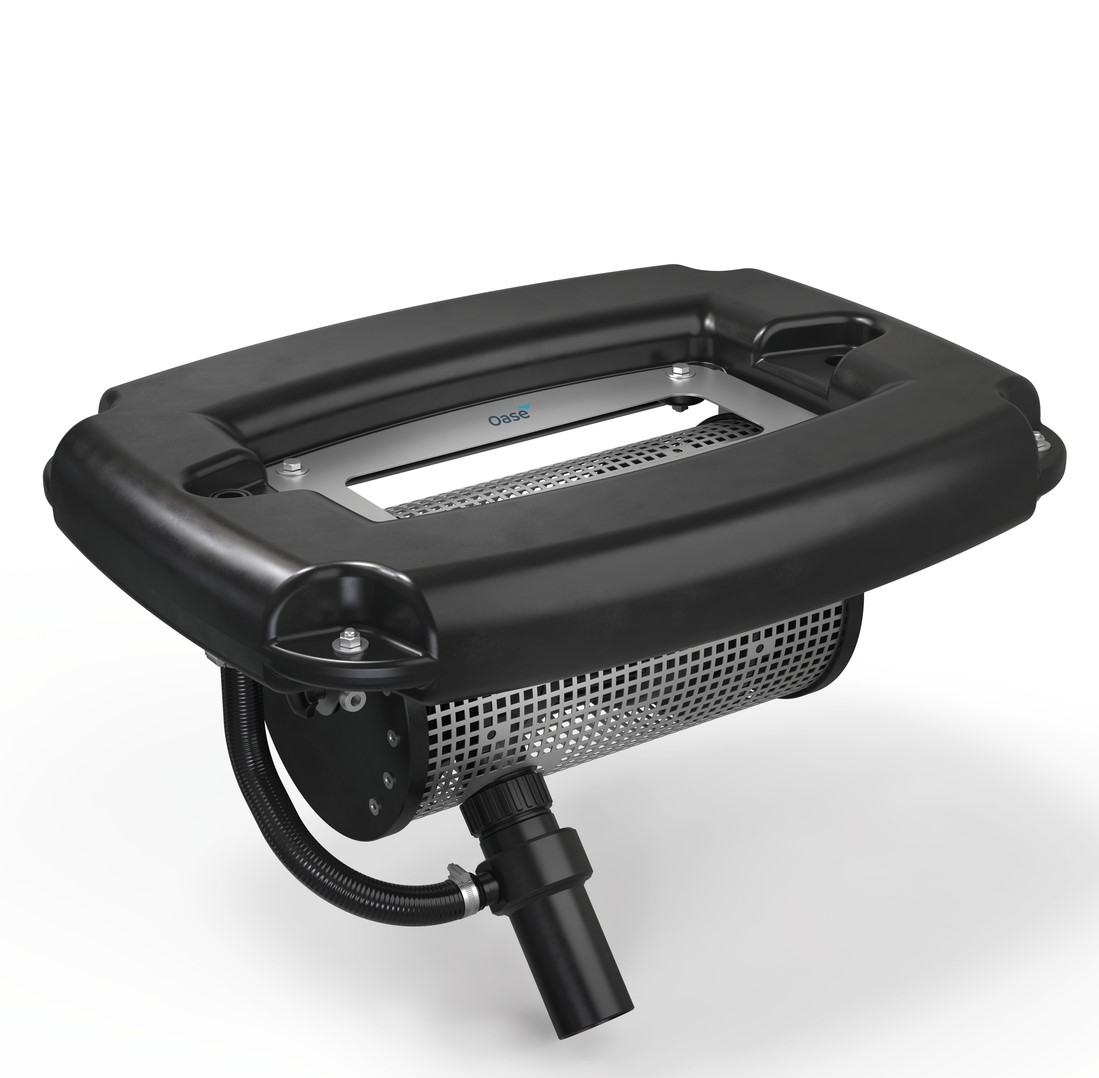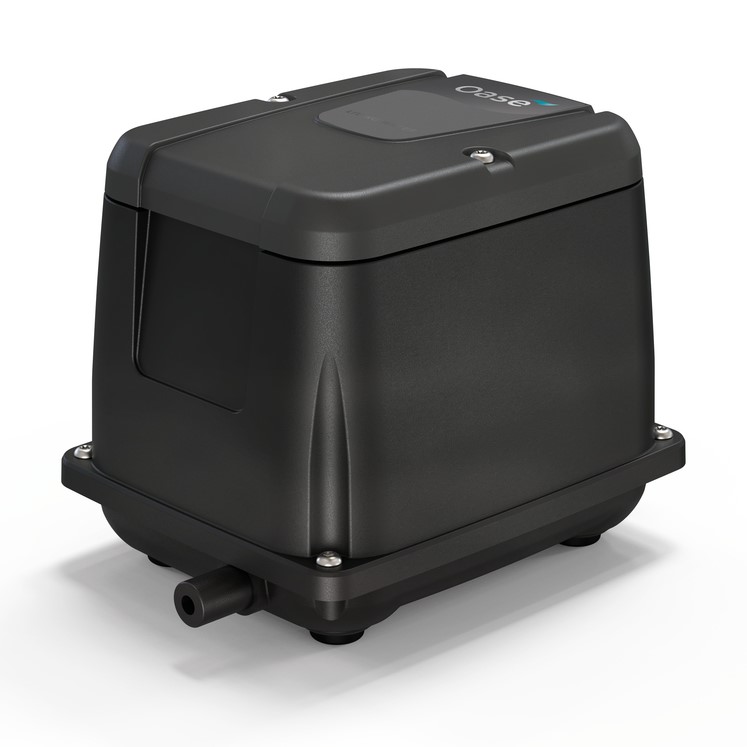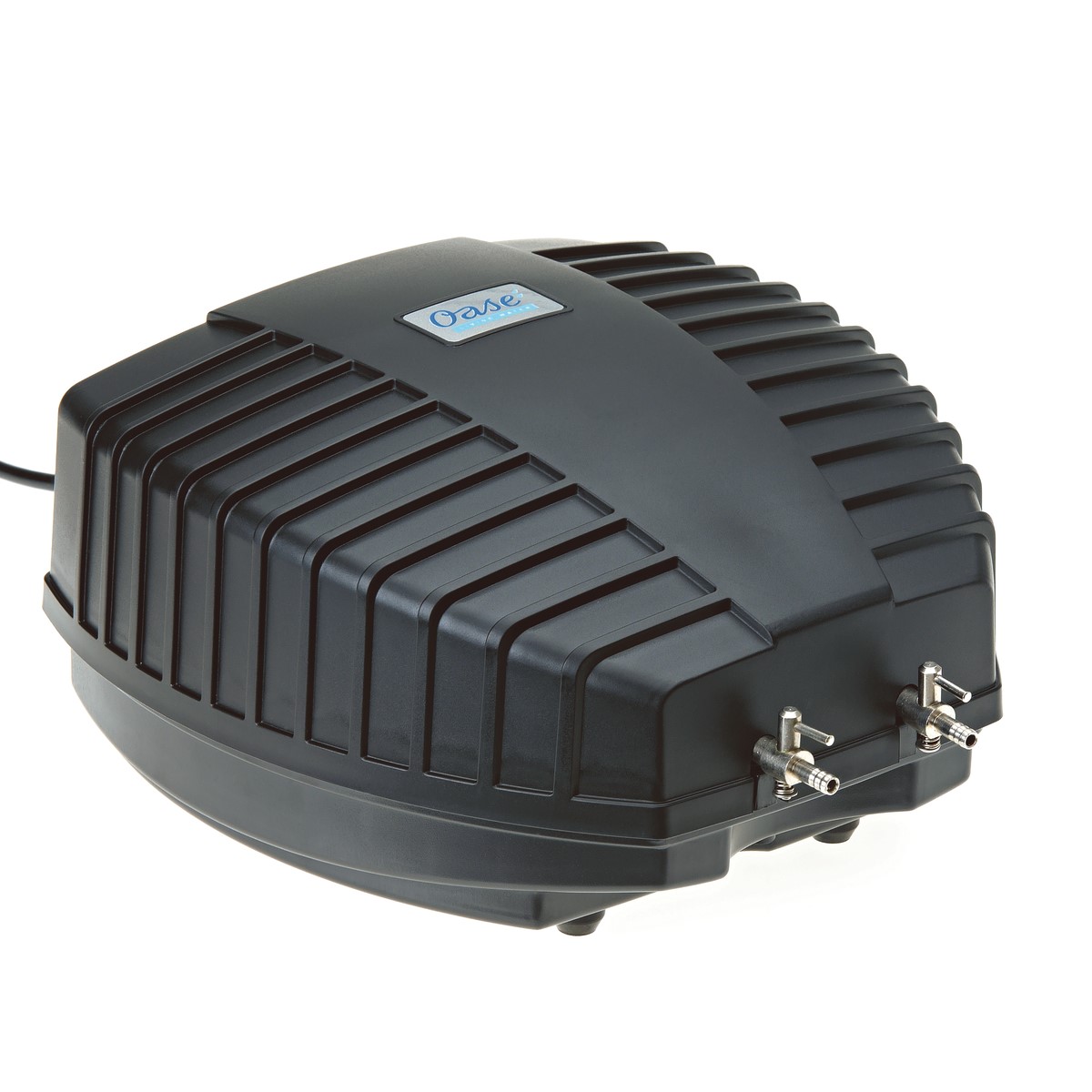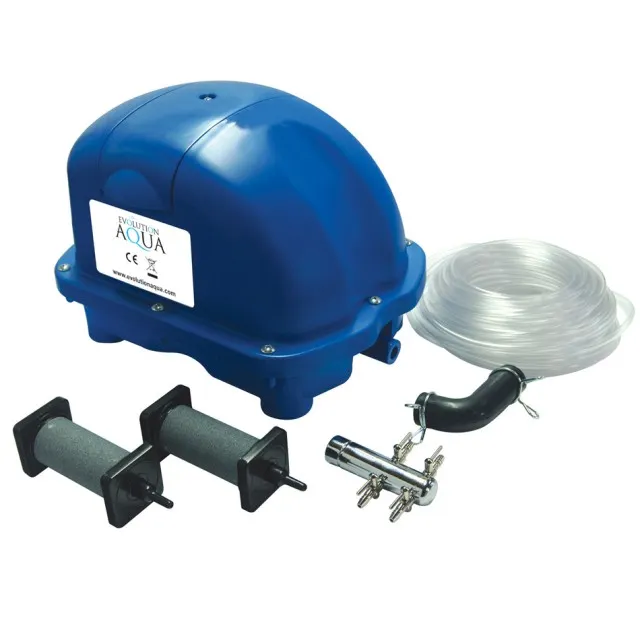Air Pumps – Frequently Asked Questions
Below, we’ve compiled a list of frequently asked questions to help you better understand the importance, functionality, and benefits of pond air pumps for your pond.
1. What is a pond air pump, and how does it work?
A pond air pump is a device designed to oxygenate the water in your pond by creating bubbles that rise to the surface, thus facilitating gas exchange. These pumps typically consist of a motor that powers a diaphragm or piston to push air through a tube and into the water, where it forms bubbles.
2. Why is oxygenation important for pond health?
Oxygen is vital for the health of pond inhabitants, including fish, plants, and beneficial bacteria. Adequate oxygen levels support fish respiration, promote beneficial bacteria growth for biological filtration, and aid in preventing the accumulation of harmful gases like ammonia and methane.
3. What are the benefits of using a pond air pump?
- Improved Water Quality: By increasing oxygen levels, pond air pumps help maintain water clarity and reduce the risk of algae blooms.
- Enhanced Fish Health: Proper oxygenation promotes fish vitality, reduces stress, and lowers the likelihood of diseases.
- Winter Survival: In colder climates, pond air pumps prevent ice formation by keeping a small area of the surface water open, allowing for gas exchange and ensuring fish survival during winter.
- Beneficial Bacteria Activity: Oxygenation supports the growth and activity of beneficial bacteria, which break down organic waste and maintain water quality.
4. How do I choose the right pond air pump for my pond?
When selecting a pond air pump, consider factors such as the size of your pond, the depth of the water, and the number of fish or other inhabitants. Look for pumps that provide sufficient aeration for your pond’s volume and depth, and consider additional features such as energy efficiency and durability.
5. Can I use multiple air pumps in my pond?
Yes, using multiple air pumps can be beneficial, especially for larger ponds or those with irregular shapes. Distributing air across different areas of the pond ensures uniform oxygenation and prevents stagnant zones where oxygen levels may be lower.
6. How do I install and maintain a pond air pump?
Installation typically involves placing the air pump on a stable surface near the pond, connecting the tubing to air stones or diffusers, and submerging them in the water. Regular maintenance includes cleaning the air pump intake to prevent debris buildup, replacing worn-out tubing or air stones, and ensuring the pump operates smoothly.
7. Can a pond air pump be used in conjunction with other filtration systems?
Absolutely! Pond air pumps complement other filtration systems such as biological and mechanical filters. Combining these systems enhances overall water quality and promotes a healthy aquatic environment.
8. Are pond air pumps energy-efficient?
Many modern pond air pumps are designed to be energy-efficient, consuming minimal electricity while providing effective aeration. Look for pumps with energy-saving features and consider using a timer to regulate pump operation based on your pond’s specific needs.
9. Do pond air pumps make noise?
While some pond air pumps may produce a gentle hum or vibration, many models are designed to operate quietly, especially when placed on a stable surface and properly maintained. Choose a pump with noise-reducing features if noise is a concern for you.
10. Are pond air pumps suitable for all types of ponds?
Pond air pumps are versatile and suitable for various types of ponds, including koi ponds, garden ponds, and water gardens. Whether you have a small backyard pond or a large ornamental water feature, a properly sized and installed air pump can significantly benefit your aquatic ecosystem.
If you have any further questions or require assistance in selecting the right pump for your pond, don’t hesitate to reach out and contact us.






